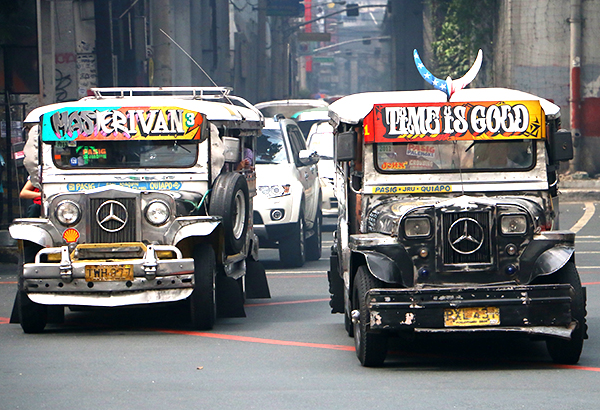
Upgrade to High-Speed Internet for only ₱1499/month!
Enjoy up to 100 Mbps fiber broadband, perfect for browsing, streaming, and gaming.
Visit Suniway.ph to learn
Quezon City Department of Public Order and Safety (QC-DPOS) personnel remove unauthorized tarpaulin greetings from politicians and advertising materials attached to electricity poles in Quezon City on January 14, 2025 as part of the local government’s ongoing “Oplan Baklas” campaign.
The Philippine STAR / Miguel de Guzman
MANILA, Philippines — Candidates who go beyond the campaign spending cap may be disqualified, the Commission on Elections (Comelec) said on Wednesday, May 21.
“Yes, that could be a ground for disqualification,” Comelec Chair George Garcia said in an interview with ANC Headstart.
Under Section 13 of the Statement of Contributions and Expenditures (SOCE) Law, candidates — except those running for president or vice president — can spend up to P3 per registered voter in the area where they are running, as long as they belong to a political party.
Independent candidates, meanwhile, may spend up to P5 per registered voter in the same area.
Based on the Commission on Elections’ latest count of 69,673,653 registered voters, senatorial candidates with party affiliation may spend up to P209,020,959, while independent senatorial bets are allowed a maximum of P348,368,265.
Spending limits vary for local candidates, whose allowed expenditures depend on the number of registered voters in their respective jurisdictions.
For instance, a mayor is limited to the voting population of their city. This would mean their maximum campaign expenditure is smaller than that of national candidates like senators and party-lists.
It’s also worth noting that donations and other contributions are not counted toward the spending limit. The limit applies to actual campaign expenditures, not to the total amount of donations received, though all donations must still be properly declared.
Candidates, however, are prohibited from accepting contributions from public or private financial institutions, foreign individuals or entities and government officials.
Garcia believes the existing law should be amended to reflect the necessary increase in campaign spending limits.
“So if they exceed the limit, the amount that is supposed to be spent, then they can be charged under the SOCE Law, and at the same time a perjury case can be filed against them,” Garcia said.
The poll chief also said they have caught several candidates who have exceeded the campaign expenditure limit. This would result in a disqualification case and an election offense that is punishable by one to six years.
The commission is currently handling around 400 pending cases of candidates accused of overspending, all of which remain under review by its law department.
Garcia said the Comelec will be “very very strict” in holding accountable those who go beyond the campaign spending cap in the 2025 midterm elections.
“So again, we’ll be going after them, even if it is P1 or even if it is P1 million,” he added.
The poll chief also clarified that a case does not need a court conviction for a candidate who spent more than the allowable amount to be disqualified. It only needed the Comelec’s determination for the case to be a ground for disqualification.
“Even if there is no conviction by a court but there is a determination by the commission that that person could have spent more than the required amount, then that is ground to disqualify that candidate even perhaps not this term but perhaps during the second term that they will be running,” Garcia said.
The Comelec also encouraged the public to review the SOCEs of the candidates they supported, and of those elected, once these are published on June 12, a day after the filing deadline.

 1 month ago
10
1 month ago
10



